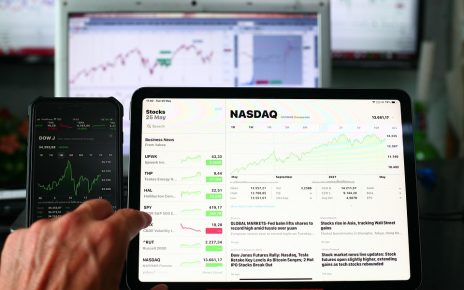Beginner traders do everything in their power to stick to the basics and follow every rule, recommendation, and piece of advice they come across while learning about trading. However, as time goes by and traders become more experienced, they slowly drift away and forget to stick with the basic trading rules that worked early on in their trading career and return to the old bad trading habit.
How risky is it to ignore the basic tenets in the trading industry, and is it essential for every trader to adopt the basic rules of trading, regardless of how experienced and skillful they are? Here are some of the basic trading fundamental rules in trading that you must know.
1. Create a trading plan

One of the fundamental trading rules is to develop a detailed trading plan to serve as a guide in making trading decisions. Each trade is unique, and the parameters that may trigger a specific trade setup may differ. Therefore, traders must have a plan that will detail exactly their action when a trade setup occurs.
Creating a trading plan doesn’t only imply coming up with a trading strategy. The trading plan should clearly state and include the trading style, the trading conditions that will trigger an entry and exit of positions, risk management rules, the markets to be traded; the appropriate time-frames trades will be executed on, etc. Creating a trading plan is beneficial for all traders, regardless of their experience. A trading plan, when well-written, guides the trader to make informed decisions about his trades and moves the trader to remain calm and stick to his plans even under the most stressful trading circumstances.
2. Invest in several markets
One of the fundamental rules for successful trading is never to put all your eggs in one basket. A more efficient way of trading is to diversify your portfolio and invest in as many different asset classes as possible. This will essentially reduce your risk exposure since your investment is distributed across multiple financial instruments. It is noteworthy to emphasize that diversifying, while important, will not insure a trader against losses in general. It will instead seek to minimize risk such that when one market suffers losses, there will be another that will be more profitable to counterbalance the overall portfolio. To successfully manage the trading business’s uncertainties and survive long-term, learning how to diversify into other markets is vital.
3. Protect your capital
One of the ultimate goals of a trader (especially new traders) is to protect their Capital as much as possible. It is often helpful to find markets whose price fluctuations are less volatile to trade in when starting as a trader. It is essential to develop robust risk management rules that will help protect your trading capital and avoid significant losses that could lead to blowing up your entire trading account.
This is one of the basic principles in trading to keep in mind throughout your trading journey. If you master the art of capital preservation, even when there is a losing streak, it can be managed well and the trading capital protected from significant losses. By all means, traders should avoid taking unnecessary risks that can expose their trading capital to excessive losses.
4. Only risk what you can afford to lose

Generally, trading involves assuming a measure of risk to maximize profit potential. It is therefore essential to be realistic regarding our profit expectation. Traders must ask themselves that in the event of a Force Majeure or an unexpected event in the market, will they be able to stomach the losses they may potentially incur?
It is also essential to know your risk profile as a trader to determine how much capital you want to risk on the market. To do this, one must objectively answer the following questions:
- What is my trading objective? Am I interested in preserving my trading capital and building it over the long term to live off the returns it generates later in my trading career?
- Will it be necessary to touch my trading capital for my living expenses in the near term? If you depend on your trading capital for general living expenses, then you may want to adopt a low-risk profile for your trading.
- How would you react if you were to lose a significant portion of your investment (e.g., 50%)? Will you be worried and lose sleep over it?
How the above questions are answered will determine the kind of risk profile to adopt and how much capital to invest in your trading. Therefore, always keep in mind never to risk any amount you cannot afford to lose in the market.
5. Know when to stop trading
Losing streaks happen to all traders, no matter how experienced they are. However, every trader deals with a loss differently, distinguishing good traders from bad ones. Trying to win back the lost funds often ends up with traders spiraling into a trap of losses and wasting what’s left of their resources.
Knowing when to stop trading is an outstanding trait every trader should possess, as it prevents you from taking actions you’ll regret several days later. Using a stop-loss feature is another excellent alternative to cutting losses.
6. Study and research trading
Taking the time to study and do research about trading isn’t only what beginner traders should do. The trading journey can be an exciting one indeed; however, new traders are often left confused because of the sheer amount of information available.
Many abandon the idea of researching first and venture into the markets without enough knowledge. Taking the time to explore what trading is and how it works, the types of markets to trade in, and how your selected market reacts with the release of relevant economic news events will give you a better understanding of what to incorporate in your trading decision-making process. There are a lot of trading resources available online designed to help traders easily navigate through trading information and offer the opportunity to practice before committing real funds to the market. By practicing, you will get an objective experience and ultimately learn
Expanding one’s knowledge, doing the much-needed research, and analyzing the trading industry will ensure a trader stays relevant. By failing to do so, uninformed traders risk turning out of touch with their professional field. Over time, this can result in bad decision-making, poor career choices, and even loss of trading capital.
7. Treat trading as your business
Finally, traders should always remember that trading is a profession and must be treated with the same level of discipline as with any other business. Like any successful business, a trader must strive to master the skill of trading to generate a consistent flow of income from it, managing his downside accordingly.
Under no circumstance should a trader treat trading as fun or a hobby, where hope and luck become a part of his’ trading strategy’. Like a traditional business, you must develop a road map of how you intend to commit to your trading journey until you turn it into a consistent and profitable investment vehicle in the long run.
There is no shortcut in trading; to succeed, you must be prepared to put in the work and cultivate qualities like commitment, perseverance, and discipline. Successful traders who treat trading as a business always strive for excellence and continue to develop and improve their overall trading method.
Successful traders genuinely understand the need to remain focused and stick to their trading plan regardless of the trading conditions. To treat trading as a business is to thoroughly prepare for your trading journey and develop a master plan for success.
Final thoughts
In your trading journey, there may be times that you may easily forget the basic tenets of trading. To propel yourself into a successful trader, you must constantly remind yourself of these fundamental trading principles and incorporate them into the core of your trading routine.
It is essential to note that the ultimate goal of trading is to make money and will be achieved by consistently making more profits over a longer period than you lose.





